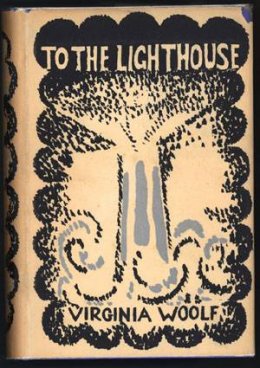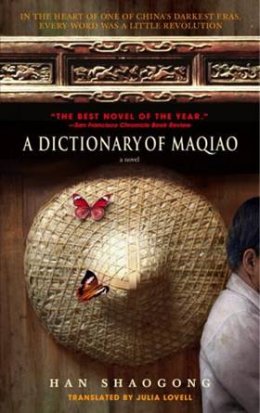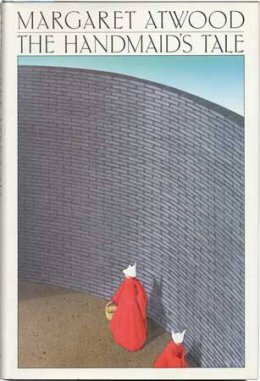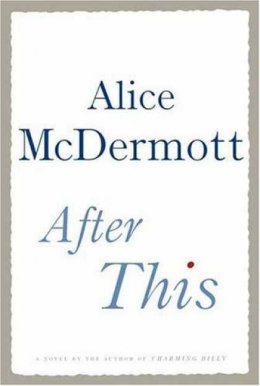Waiting
Author: Ha Jin
"Achingly beautiful…Ha Jin depicts the details of social etiquette, of food, of rural family relationships and the complex yet alarmingly primitive fabric of provincial life with that absorbed passion for minutiae characteristic of Dickens and Balzac." – Los Angeles Times Book Review
"A vivid bit of storytelling, fluid and earthy…Reminiscent of Hemingway in its scope, simplicity and precise language… A graceful human allegory." – Chicago Sun-Times
"A subtle beauty… A sad, poignantly funny tale." – The Boston Sunday Globe
"Impeccably deadpan… Waiting turns, page by careful page, into a deliciously comic novel." – Time
"Spare but compelling…Jin's craftsmanship and grasp of the universal language of the human heart make the book a worthwhile read." – USA Today
"A wry, lovely novel…Unexpectedly moving…So quietly and carefully told that…we read on patiently, pleasantly distracted, wondering when something will happen. Only when we've finished do we understand just how much has, and how much waiting can be its own painful reward." -Newsday
"Enlightening…a delicate rendering of the universal complications of love…Ha Jin's natural storytelling quietly captures the texture of daily life in a dual Chinese culture…No detail is extraneous in this sad, funny, and often wise novel." – The Village Voice Literary Supplement
"Remarkable… compellingly ingenious… gorgeously cinematic." – The Philadelphia Inquirer
"A wonderfully ironic novel… complex and sad as life…It captures the difficulties of love in totalitarian China with sharp prose and a convincing portrayal of human vagaries." – Minneapolis Star Tribune
"Subtle and complex… his best work to date. A moving meditation on the effects of time upon love." – The Washington Post
"[Jin] reveals some startlingly original insights on human life and love…in a narrative that dazzles the reader with its simplicity and grace." -The Providence Sunday Journal
"[Waiting is] a masterpiece of realism and a work of ironic allegory, its mystifying, foreign world full of characters who grow more familiar with every page…Through an accumulation of small, deft brushstrokes, 20th century China is superimposed onto the landscape of an ancient, painted scroll." -The Plain Dealer
"A high achievement indeed." – The New York Review of Books
***
This novel tells the story of Lin Kong, a man living in two worlds, struggling with the conflicting claims of two utterly different women, as he moves through the political minefields of a society designed to regulate his every move.
***
Amazon.com Review
"Every summer Lin Kong returned to Goose Village to divorce his wife, Shuyu." Like a fairy tale, Ha Jin's masterful novel of love and politics begins with a formula-and like a fairy tale, Waiting uses its slight, deceptively simple framework to encompass a wide range of truths about the human heart. Lin Kong is a Chinese army doctor trapped in an arranged marriage that embarrasses and repels him. (Shuyu has country ways, a withered face, and most humiliating of all, bound feet.) Nevertheless, he's content with his tidy military life, at least until he falls in love with Manna, a nurse at his hospital. Regulations forbid an army officer to divorce without his wife's consent-until 18 years have passed, that is, after which he is free to marry again. So, year after year Lin asks his wife for his freedom, and year after year he returns from the provincial courthouse: still married, still unable to consummate his relationship with Manna. Nothing feeds love like obstacles placed in its way-right? But Jin's novel answers the question of what might have happened to Romeo and Juliet had their romance been stretched out for several decades. In the initial confusion of his chaste love affair, Lin longs for the peace and quiet of his "old rut." Then killing time becomes its own kind of rut, and in the end, he is forced to conclude that he "waited eighteen years just for the sake of waiting."
There's a political allegory here, of course, but it grows naturally from these characters' hearts. Neither Lin nor Manna is especially ideological, and the tumultuous events occurring around them go mostly unnoticed. They meet during a forced military march, and have their first tender moment during an opera about a naval battle. (While the audience shouts, "Down with Japanese Imperialism!" the couple holds hands and gazes dreamily into each other's eyes.) When Lin is in Goose Village one summer, a mutual acquaintance rapes Manna; years later, the rapist appears on a TV report titled "To Get Rich Is Glorious," after having made thousands in construction. Jin resists hammering ideological ironies like these home, but totalitarianism's effects on Lin are clear:
Let me tell you what really happened, the voice said. All those years you waited torpidly, like a sleepwalker, pulled and pushed about by others' opinions, by external pressure, by your illusions, by the official rules you internalized. You were misled by your own frustration and passivity, believing that what you were not allowed to have was what your heart was destined to embrace.
Ha Jin himself served in the People's Liberation Army, and in fact left his native country for the U.S. only in 1985. That a non-native speaker can produce English of such translucence and power is truly remarkable-but really, his prose is the least of the miracles here. Improbably, Jin makes an unconsummated 18-year love affair loom as urgent as political terror or war, while history-changing events gain the immediacy of a domestic dilemma. Gracefully phrased, impeccably paced, Waiting is the kind of realist novel you thought was no longer being written.
From Publishers Weekly
Jin's quiet but absorbing second novel (after In the Pond) captures the poignant dilemma of an ordinary man who misses the best opportunities in his life simply by trying to do his duty – as defined first by his traditional Chinese parents and later by the Communist Party. Reflecting the changes in Chinese communism from the '60s to the '80s, the novel focuses on Lin Kong, a military doctor who agrees, as his mother is dying, to an arranged marriage. His bride, Shuyu, turns out to be a country woman who looks far older than her 26 years and who has, to Lin's great embarrassment, lotus (bound) feet. While Shuyu remains at Lin's family home in Goose Village, nursing first his mother and then his ailing father, and bearing Lin a daughter, Lin lives far away in an army hospital compound, visiting only once a year. Caught in a loveless marriage, Lin is attacted to a nurse, Manna Wu, an attachment forbidden by communist strictures. According to local Party rules, Lin cannot divorce his wife without her permission until they have been separated for 18 years. Although Jin infuses movement and some suspense into Lin's and Manna's sometimes resigned, sometimes impatient waiting – they will not consummate their relationship until Lin is free – it is only in the novel's third section, when Lin finally secures a divorce, that the story gathers real force. Though inaction is a risky subject and the thoughts of a cautious man make for a rather deliberate prose style (the first two sections describe the moments the characters choose not to act), the final chapters are moving and deeply ironic, proving again that this poet and award-winning short story writer can deliver powerful long fiction about a world alien to most Western readers. (Oct.) FYI: Jin served six years in the People's Liberation Army, and came to the U.S. in 1985.
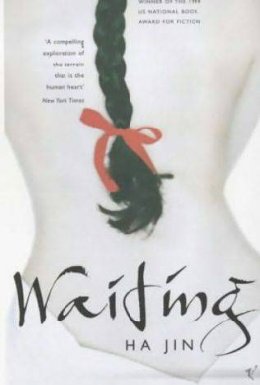
Genre:
Language:
- Download ebook
